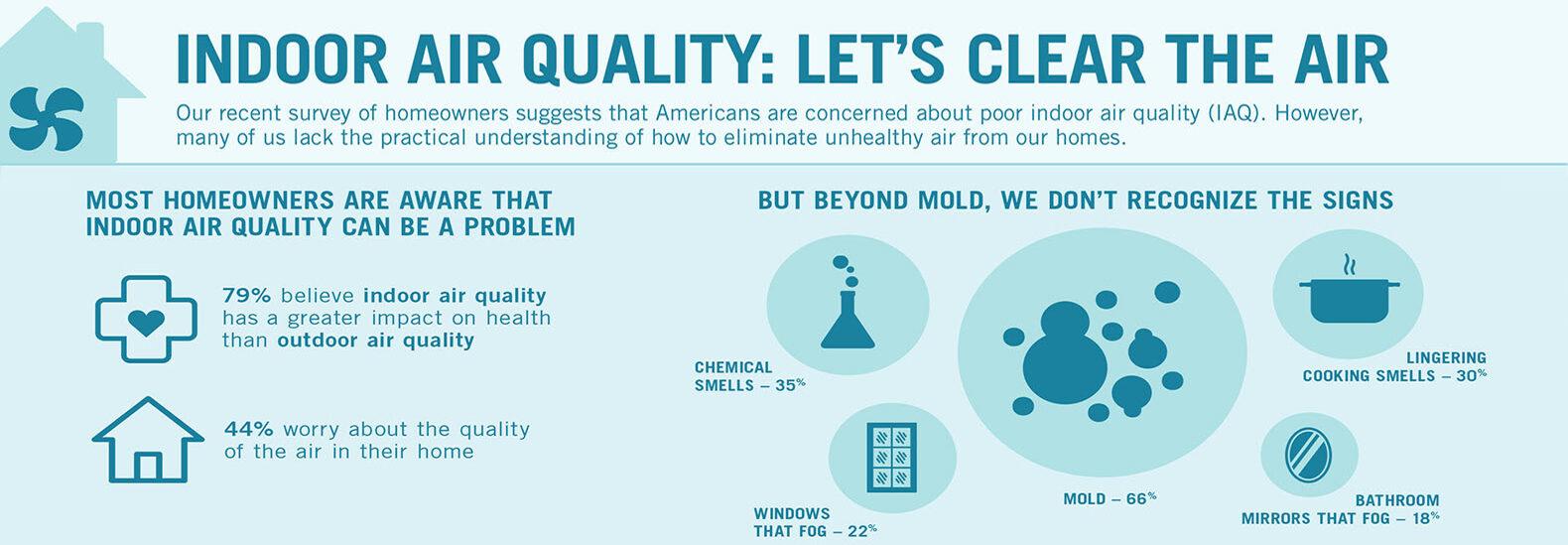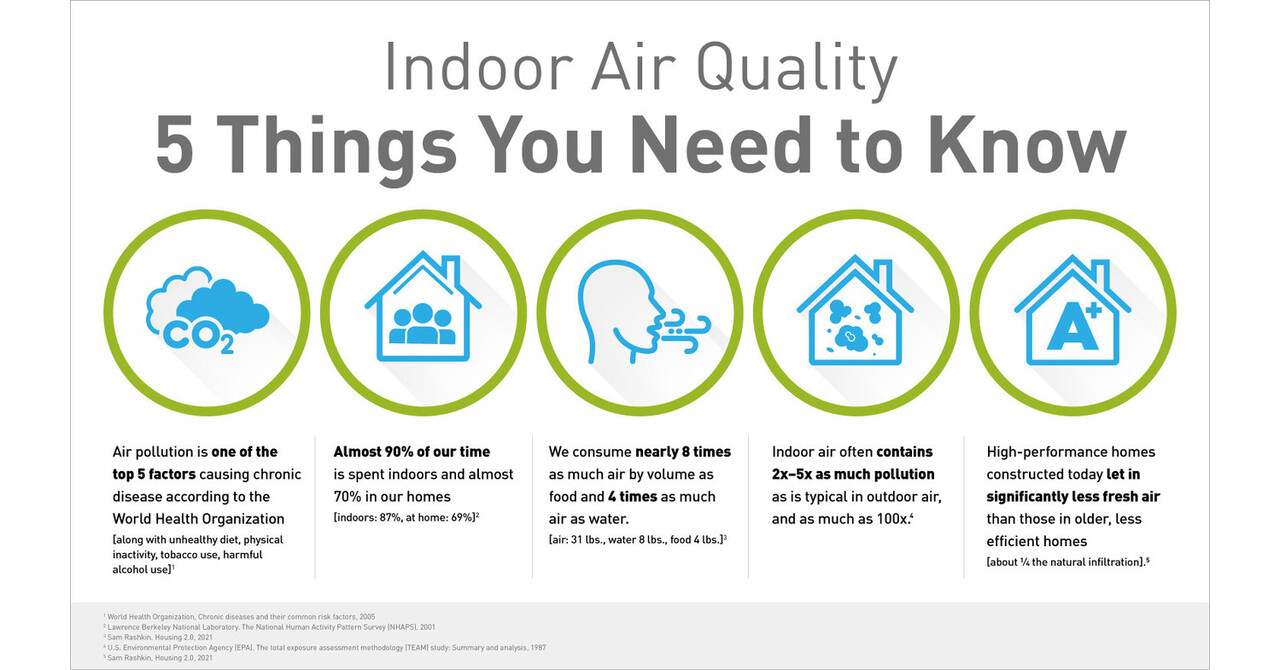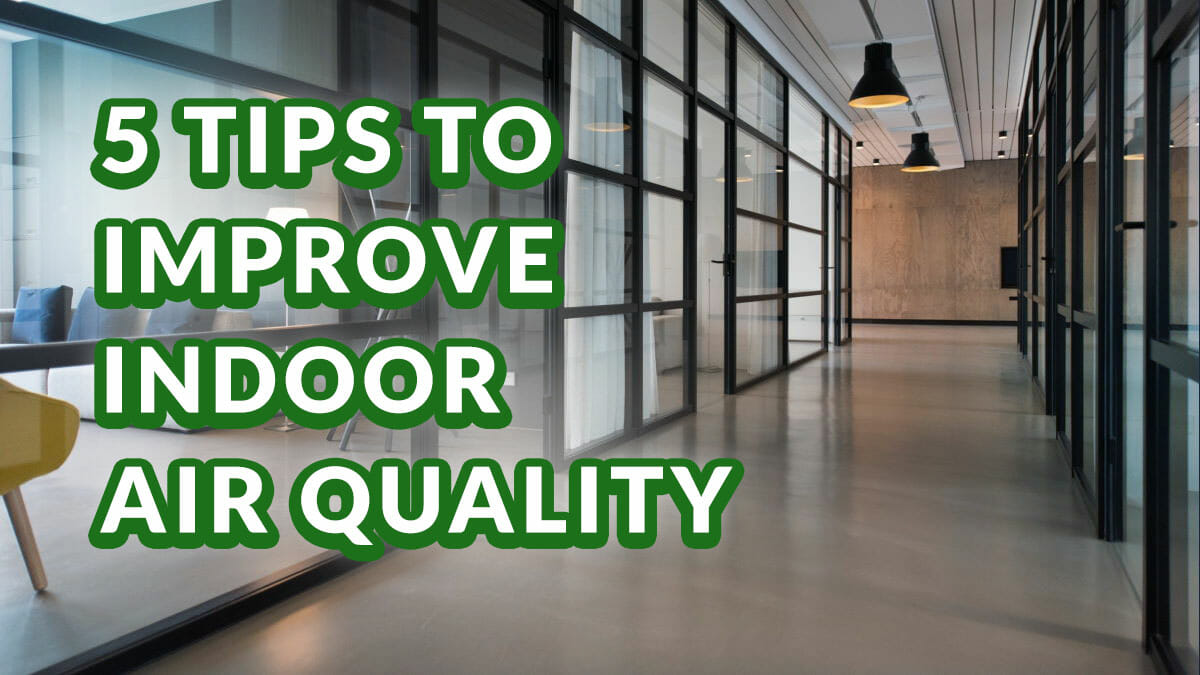Indoor air quality is crucial for the well-being of everyone in your home, but many homeowners are unaware of the significant effects poor air quality can have on their health. According to the Environmental Protection Agency (EPA), indoor air can be 2 to 5 times more polluted than outdoor air, and in some cases, the levels can be up to 100 times worse. With most people spending up to 90% of their time indoors, the quality of air in your home is more important than ever.
1. Ensure Proper Ventilation in Your Home
Proper ventilation is key to maintaining fresh, clean air indoors. In areas with hot and humid climates, like Baltimore, most homes rely on air conditioning to keep the temperature down, which often results in closed windows. While this keeps your home cool, it also traps pollutants and moisture inside.
To combat this, it’s essential to ventilate your home daily for at least 2 to 3 hours when weather permits. This simple step will help reduce the concentration of indoor air pollutants by allowing fresh outdoor air to circulate through your living spaces. If opening windows is not an option, consider using an air exchange system or exhaust fans to improve air flow.
2. Regularly Replace AC and Vent Filters

Air conditioning systems and vents have filters designed to trap airborne particles like dust, pollen, and pet dander. However, these filters can only do their job effectively when they are clean. Over time, the filters can become clogged with debris, reducing their efficiency and potentially circulating harmful particles back into the air.
To maintain good air quality, it’s essential to replace your AC and vent filters on a regular basis—every 1 to 3 months, depending on usage and local air quality conditions. Doing so will help your system run more efficiently and reduce the number of pollutants in the air.
3. Use Non-Toxic Cleaners and Disinfectants
While chemical-based cleaning products can effectively sanitize surfaces, they often release harmful fumes into the air, which can degrade indoor air quality. Inhaling these fumes may cause irritation in your eyes, throat, and respiratory system, especially for individuals with asthma or allergies.
Opt for non-toxic, eco-friendly cleaning products like vinegar, baking soda, or lemon juice. These natural alternatives can effectively clean and disinfect your home without releasing harmful chemicals into the air. For those who prefer professional solutions, many cleaning companies now offer non-toxic, chemical-free disinfecting services.
4. Schedule Professional Air Duct Cleaning
Air ducts are essential in circulating air throughout your home, but over time, they can become a breeding ground for dust, dirt, mold, and mildew. These contaminants can circulate throughout your home, negatively impacting the air quality and contributing to respiratory issues.
To ensure your air ducts are free of pollutants, schedule regular professional air duct cleaning. A trained technician will remove dust, debris, and mold, leaving your ducts clean and your air fresh. Depending on the size of your home and the presence of allergens or pets, you may need to clean your ducts every 3 to 5 years.
5. Control Indoor Humidity Levels

Humidity plays a significant role in indoor air quality. High humidity levels can encourage the growth of mold and mildew, both of which can contribute to respiratory problems and other health issues. Conversely, low humidity can cause dry skin, irritated airways, and discomfort.
To maintain optimal humidity levels, invest in a dehumidifier for areas like basements or bathrooms where moisture tends to accumulate. Aim for a humidity level between 30% and 50%. This will help prevent mold growth and create a more comfortable and healthy living environment.
Conclusion
Improving your indoor air quality is essential for maintaining a healthy home environment. By following these five tips—ensuring proper ventilation, replacing filters regularly, using non-toxic cleaners, scheduling air duct cleaning, and controlling humidity levels—you can significantly improve the air you breathe. Healthy air promotes better sleep, reduced allergy symptoms, and an overall higher quality of life for everyone in your home.
If you’re unsure where to start or need professional assistance, don’t hesitate to contact an air quality expert to help you create a healthier indoor environment.

